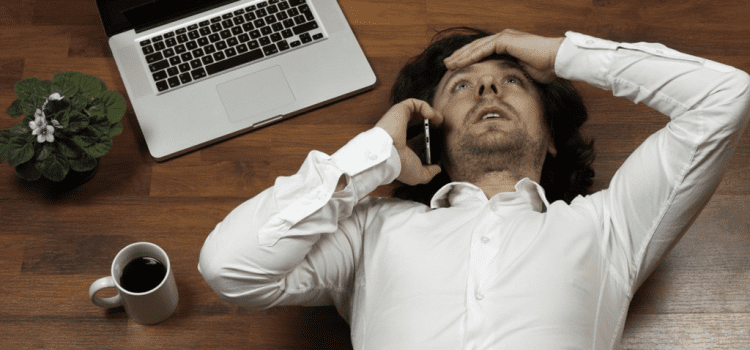The word freelancing sounds dangerously similar to ‘freedom’. It conjures up an image of a boss-free worker who flits butterfly-like to whatever job takes their fancy, remaining there for however short or long a time they please; no compulsory landing sites, no air traffic control, and no need for interaction with other winged creatures unless they desire it. So it’s not surprising that in 2011, a report by an all-party Parliamentary Group found 78% of the UK public thought freelancing and flexible working help promote a good work/life balance.
But how do self-employed people themselves feel about their working lives? I talked to some of my fellow ‘butterfly workers,’ and they admitted it’s not all roses…
The Ups
Writer, researcher and author HJ Blenkinsop says she loves the lack of commute and working in her PJs if she wants to – and the ‘help’ from her cat (not a perk I really envy. Every cat I meet spends all its time digging its claws in my leg, and I think that would ruin my concentration).
PJ-working is popular with novelist, columnist and presenter Jane Wenham-Jones too, who also loves “being able to organise my own time and drink wine as needed.” This freedom to organise your own time and work schedule always ranks high on freelancers’ favourite things – and is part-and-parcel of another perk: having no boss except yourself.
“I most love being in control,” agrees researcher and writer Dr Helen Kara, “a.k.a. not having to kow-tow to idiots.” She’s another lover of pyjama-working (and the associated lack of ironing). “That’s a big plus for me. When I had a proper job, I had to iron clothes EVERY WEEK!”
Arranging your own work schedule means you can play in the day, even if the pay-off is working in the evenings and weekends – and this is what freelance writer & content marketing consultant Emma Siemasko enjoys most of all: “I LOVE the flexibility, and getting to work out in the middle of the day.”
Jane Holland, a novelist and poet who also writes under the pseudonyms Victoria Lamb, Elizabeth Moss and Beth Good, has taken her ‘freedom’ one step further and established her own publishing company, Thimblerig Books. The upside for her? “Not having to answer to editors or make things relevant to market. The editorial freedom is fab.”
Working in your PJs. Organising your work and leisure to suit you. No boss, often no commute… sounds idyllic. Surely these lucky people won’t have a bad word to say about the freelance life?
The Downs
Let’s be honest; while we freelancers often say the only boss we have is ourselves, most of us have people we answer to, because we have work; work that only exists because someone somewhere needs it done. So whether you’re a plumber, caterer, novelist, mobile hairdresser, non-fiction writer, researcher, games designer or illustrator, you will have customers, clients, editors or publishers who have expectations (ranging from aggravatingly vague to scarily specific) of what they want and when. Not surprising then that HJ Blenkinsop, like me, lists “pesky clients” among her top freelancing ‘downs’.
Both she and Jane Holland list unpredictable income as a downside too, and I find myself nodding in agreement when Helen Kara says she “most hates the bits with no income” – feast and famine, the eternal complaint of the freelancer, is better than prolonged famine. This is why some freelancers work on an employed basis as well. My part-time work as a Literacy Coordinator gives me a financial security blanket I’m loath to give up entirely (thin though it is!).
Unfortunately, being your own boss means taking responsibility for all the things that other people usually handle when you’re employed. Jane Holland’s own publishing house may give her editorial freedom, but she “hates the lack of promo help,” while Emma Siesmasko dislikes “managing all of my own finances and benefits.”
As for working from home, even that isn’t the relaxed, pyjama-clad ride it seems. HJ Blenkinsop cites isolation as one of the major downsides, and Jane Wenham-Jones admits that her “limitless talent for procrastination” is a problem. But it’s Jane’s final comment that gets to the heart of my biggest gripe: “I hate other people thinking that being at home means I’ve got my feet up!”
The Reality
It seems self-employment isn’t the wholly liberating experience that conventionally-employed people imagine. There are still rules, and often even more responsibilities. There’s nobody to step in when you want a day off or you’re sick, there’s no holiday pay, and if you want to bounce ideas off someone else you’ll need to go and find them online or at an industry group or event. So why aren’t more self-employed people falling over themselves to get back into traditional employment?
Perhaps because the freedom, flexibility and control they gain by working for themselves – however limited it may be – outweighs the downsides.








Well said. It’s not all fun, games and butterfly flitting (is that a word?) Cat claws are also a problem – Intermittent mind you, a bit like the salary ;-/
Oh, that salary! 🙂